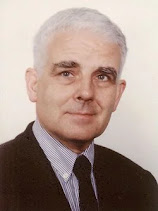The deadline for the submission of abstracts for the 2024 IGU-Urban has been extended until 29th February, 2024. Anyone interested in submitting an abstract should do it on the template available on https://www.igu-urban.org/2024-cork
This is the short conference description: "It is widely accepted that societies are currently confronted with multiple crises. This applies to city regions as well, where recent challenges such as the pandemic or rising energy prices add to ongoing problems caused by the scarcity of housing, social inequality, or longer-term issues such as climate change. Governments and city-leaders are increasingly asked to resolve acute problems, while simultaneously trying to deal with such long-term challenges. This leaves the institutions in charge with a profound dilemma: first, policies considered to be sufficiently ‘integrated’ (spatially, cross-sectoral) suffer from their inherent complexities; second, established practice hardly fits with the very temporalities of these challenges. While it seems common sense that a simple return to pre-pandemic conditions (the ‘old normal’) might be unlikely, it remains open what the ‘new normal’ in this respect could be, and how cities and regions could get there."
We call upon both established and early-career researchers working in geography and related (inter-)disciplinary contexts to send in their abstracts. These are invited to relate to the five key domains of the current Mandate of the IGU-Urban Commission mentioned below, but do not necessarily have to be confined to them.
Cities as driver of, and driven by, transformational change
Cities, urban systems and nation states
Urban areas under pressure of transformation
Climate change, resilience, urban health and well-being
Governance, institutions, urban policy.
FURTHER INFORMATION
All the information about the congress and about our commission is available on the IGU Urban Geography Commission website: https://www.igu-urban.org/
EARLY CAREER AWARD 2024
As part of its 2024 Annual Meeting the IGU Urban Commission once again offers a paper competition for Early Career Researchers in urban geography. For more information https://www.igu-urban.org/emerging-scholars-committe/
CONTACT
For information concerning the fees and the abstracts submission:
Therese Kenna: t.kenna@ucc.ie
María Jose Piñeira Mantiñán: mariajose.pineira@usc.es
We look forward to seeing you in Cork!
María José Piñeira
Chair IGU Urban Geography Commission



